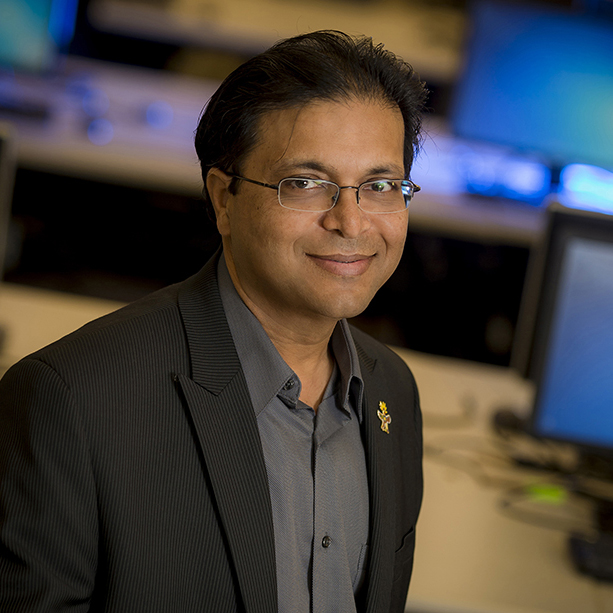Scientists Discover a New Signaling Pathway and Design a Novel Drug for Liver Fibrosis
Health & Behavior

CSE professor Rajesh Gupta will begin a five-year, part-time appointment as International Chair at INRIA, the French national institute for computer science and applied mathematics, in the French high-tech city of Rennes in Brittany.
INRIA, the French national institute for computer science and applied mathematics, has created a new International Chair and appointed American computer engineer Rajesh Gupta to the part-time position. Gupta is a professor and former chair of the Computer Science and Engineering (CSE) department in the Jacobs School of Engineering at the University of California San Diego.
Gupta will hold the International Chair for a period of five years. Starting this summer, he will engage with researchers in INRIA’s research center in the cathedral town of Rennes in eastern Brittany. The position enables him to spend as much as a year spread out over the five years of his appointment.
Between now and 2021, the UC San Diego professor’s research focus will be end-to-end system codesign, with a specific focus on timing and energy issues in embedded systems.
"We are proud to welcome professor Rajesh Gupta among the 2017 awardees," said Valerie Issarny, who manages the INRIA program in northern California. "This offers further opportunities to strengthen ongoing collaborations with California researchers as part of the Inria@SiliconValley program which, despite its name, supports collaborations across the entire state of California."
Gupta will become a member of INRIA’s Time, Events and Architectures (TEA) project team based in Rennes. TEA researchers are part of the institute’s Language and Software Engineering group. TEA explores time modeling in system design, time as a viewpoint in system analysis, and applications to embedded system design – Gupta’s own area of research. Gupta has a long history of collaboration with INRIA researchers starting in 2001, when he initiated a collaborative project with INRIA researchers under support from the National Science Foundation’s international programs to advance models and methods in codesign. His collaborations with TEA are focused on methods to create software for emerging Internet of Things (IoT) devices and the organization of sensor data streams.
At UC San Diego, Gupta holds the Qualcomm Endowed Chair in Embedded Microsystems in the CSE department, with funding from the wireless company through its commitment to support the California Institute for Telecommunications and Information Technology (Calit2). Gupta is also Associate Director of the Qualcomm Institute, Calit2’s division at UC San Diego.
His research is primarily carried out through the Microelectronic Embedded Systems Laboratory which Gupta leads, and he also heads CSE’s Embedded Systems Group. He did his undergraduate education at the Indian Institute of Technology-Kanpur, and his graduate education at UC Berkeley (M.S. ’86) and Stanford University (Ph.D. ’94).
Gupta worked in industry as a circuit designer for Intel Corporation before getting his Ph.D. After graduation, he joined the computer-science faculty at the University of Illinois at Urbana-Champaign and then UC Irvine. In November 2002 Gupta left Irvine to join the Jacobs School’s CSE department.
Gupta is one of four well-known computer scientists from around the world awarded International Chairs by INRIA starting in 2017. The others are on the faculties of the University of Waterloo (Canada), Mississippi State University and Johns Hopkins University.
Gupta is not the only CSE professor to hold simultaneously an International Chair in INRIA. In 2013 CSE Professor Victor Vianu was appointed to a similar five-year term that ends this year. Vianu works on data-driven collaborative workflows. Based at INRIA’s Saclay research center in the Paris suburb of Palaiseau, Vianu has commuted for weeks or months annually between San Diego and Paris to be part of INRIA’s research team on Databases and Verification (DAHU is the French acronym). The DAHU team develops solid foundations for data-aware specification and verification in an Internet environment – in hopes of making new generations of systems manipulating data over the Internet safer and more reliable.
Keep up with all the latest from UC San Diego. Subscribe to the newsletter today.